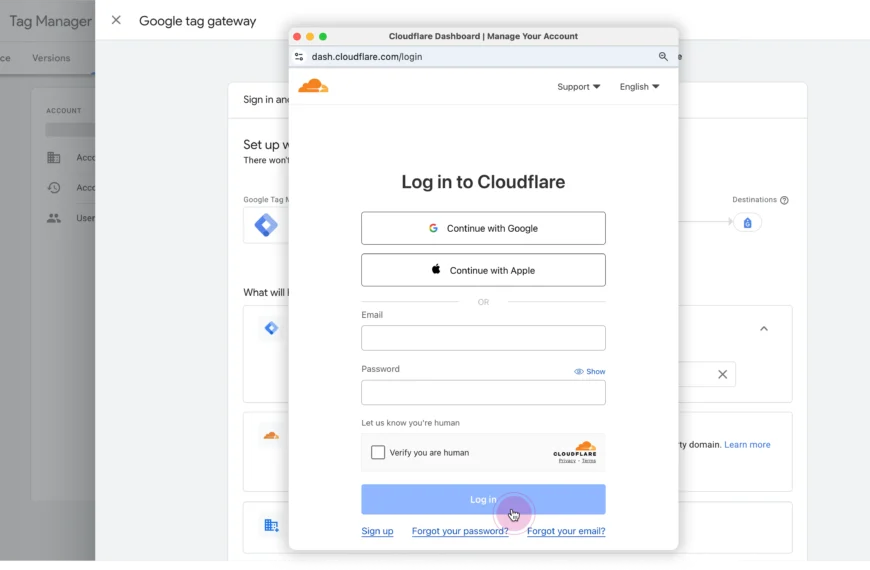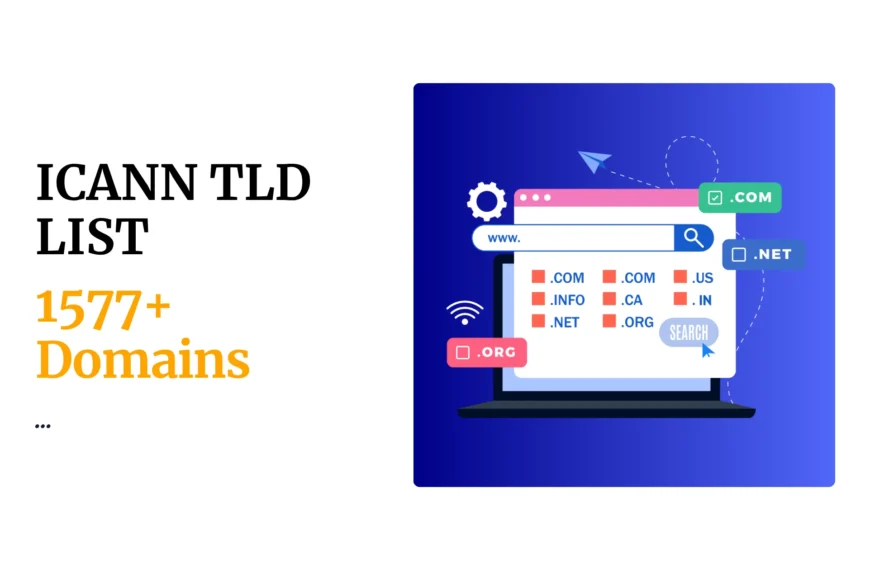Last updated on May 14th, 2025 at 04:56 pm
Small businesses is what powers Kenya’s economy: Think M-Pesa shops, Mali Mali, general shops, salons, supermarkets, etc.
If you’re thinking about starting a small business, you need to take the time to evaluate your idea to see if it fits the market you aim to serve:
We talking:
- Market demand: will you get enough foot traffic to sustain your business?
- Competition: Are there many similar shops in the location you’ve chosen?
- Unique Value Proposition: Quite a mouthful, I know, but essential it’s what will differentiate you from the rest.
There are several small business ideas in Kenya that are quite profitable, it behoves you to choose one that interests you the most.
Small Business Ideas in Kenya
0) Start an online business
Starting an online business is one of the most lucrative small business ideas in Kenya today.
With internet penetration at an all-time high, more people are turning to online platforms to shop, learn, and connect.
Whether you’re selling products, offering services, or creating digital content, an online business offers unparalleled flexibility and scalability.
Here are steps to get started:
- Identify your niche: Focus on what you’re passionate about or skilled in, whether it’s selling handmade crafts, providing freelance services, or creating a blog.
- Create a website: A professional website is your online storefront. This is where your customers will find your products or services.
- Leverage social media and SEO: Drive traffic to your site using social media platforms and optimize your site for search engines.
- Offer excellent customer service: Respond promptly to inquiries and ensure smooth transactions to build trust with your customers.
At Truehost Kenya, we make it easy for you to start and grow your online business. We provide:
- Affordable domain registration starting at just KES 570.
- Reliable web hosting plans tailored to fit your business needs, starting as low as KES 150 per month.
- Free SSL certificates to secure your website and boost customer trust.
- Website builders that allow you to design a stunning website without needing technical expertise.
Our hosting packages come with 24/7 customer support to ensure your online business runs smoothly. With a focus on affordability and reliability, Truehost Kenya is the ideal partner for entrepreneurs looking to launch a successful online venture.
Ready to get started? Get your domain and hosting here. Let’s help you build the business of your dreams!
Build Your Dream Business (From Just KES 2500 Per Year)
WordPress, Litespeed, cPanel, Emails, SSD
WebHosting Starter
Ksh 188/mo when billed triennially.
- Hosts 10 Websites
- WordPress Hosting & other CMS
- ~25 000 visits monthly
- Free Website Migrations
- 30 GiB SSD Storage
- 1-click Installer
- Free automated SSL
- Unlimited bandwidth
- Unlimited Email Accounts
- Free Daily backups
- Free Website Builder
- Free Website Templates
- Shared IP Address
- Powered by Cpanel
WebHosting Pro
Ksh 394/mo when billed triennially.
- Hosts 30 Websites
- WordPress Hosting & other CMS
- ~50 000 visits monthly
- Free Website Migrations
- 50 GB SSD Storage
- 1-click Installer
- Free automated SSL
- Unlimited bandwidth
- Unlimited Email Accounts
- Free Daily backups
- Free Website Builder
- Free Website Templates
- Shared IP Address
- Powered by Cpanel
WebHosting Unlimited
Ksh 1632/mo when billed triennially.
- Free .CO.KE Domain (for annual plan)
- Hosts Unlimited Websites
- WordPress Hosting & other CMS
- Free Website Migrations
- Unmetered SSD Storage
- 1-click Installer
- Free automated SSL
- Unlimited bandwidth
- Unlimited Email Accounts
- Free backups – Auto backup
- Free Website Builder
- Free Website Templates
- Shared IP Address
- Powered by Cpanel
Webhosting Starter Monthly
Ksh 188/mo when billed triennially.
- Ksh.2500 Annually
- Hosts 10 Websites
- WordPress Hosting & other CMS
- ~25 000 visits monthly
- Free Website Migrations
- 30 GiB SSD Storage
- 1-click Installer
- Free automated SSL
- Unlimited bandwidth
- Unlimited Email Accounts
- Free Daily backups
- Free Website Builder
- Free Website Templates
- Shared IP Address
- Powered by Cpanel
1) Mitumba Business in Kenya
This is perhaps the most tried and tested small business that can be started even with minimal capital.
Don’t believe me?
Ask campus students or that thriving Mitumba business lady. When well-managed, this small business can give you great returns on investments.
But what’s Mitumba?
Mitumba refers to second-hand clothing, which is popular among many Kenyans.
These types of clothing appeal to a wide market, serving both low-to-medium income buyers looking for cheap clothes and fashion-conscious people seeking unique items.
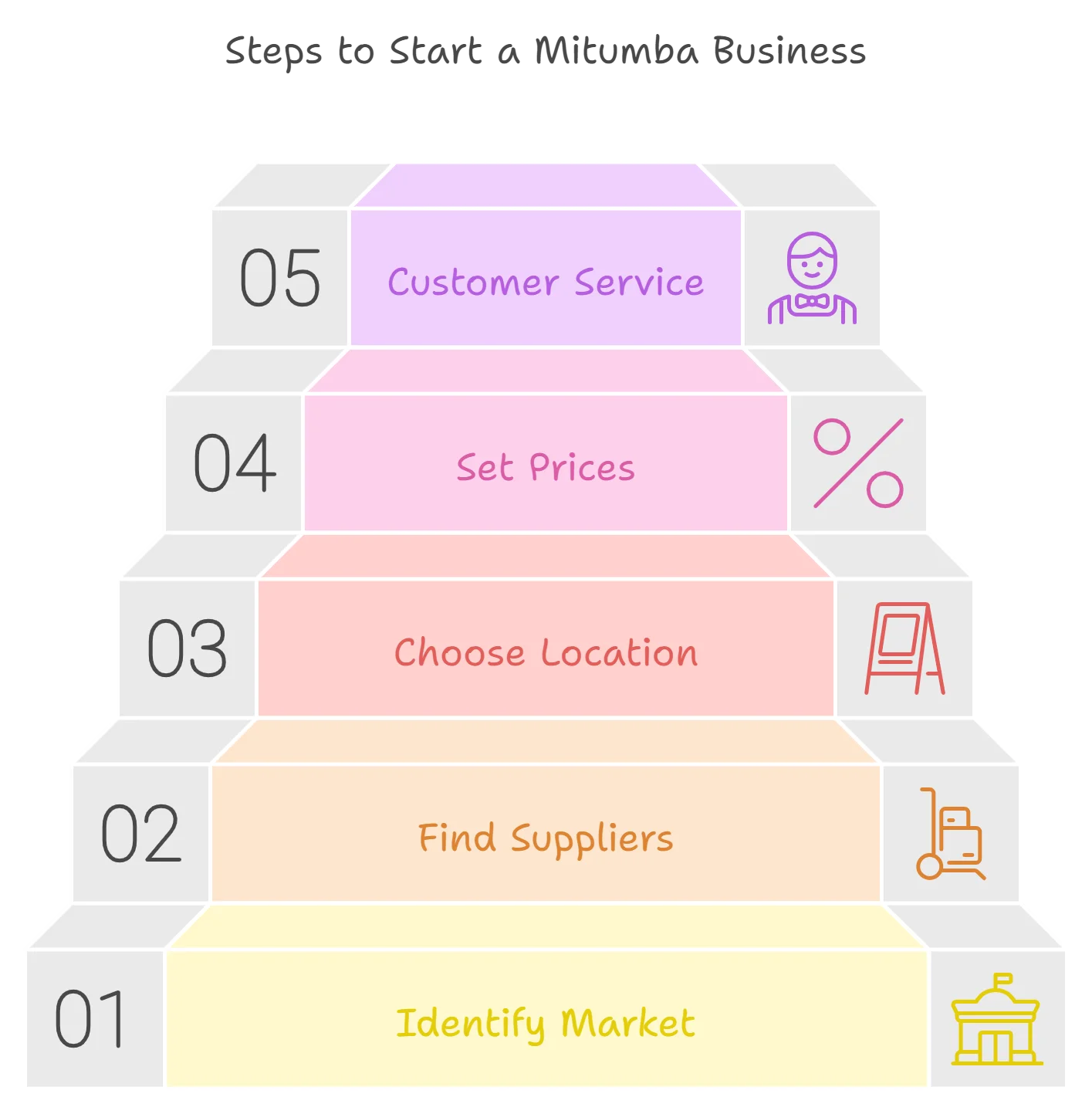
To start your mitumba business:
- Identify your target market
- Find reliable suppliers
- Choose a good location for your shop
- Set competitive prices
- Offer excellent customer service
Startup Costs and Requirements
Mitumba businesses are highly flexible regarding investment. Here’s what you’ll need:
- Initial Capital: KES 15,000–50,000, depending on the scale.
- Stock: Purchase bales of clothes at wholesale markets like Gikomba in Nairobi. A bale can cost KES 10,000–30,000, depending on the quality and type of clothing (children’s wear, jeans, or shirts).
- Location: Start with a stall in busy markets or as a mobile vendor. Renting a space costs about KES 5,000–10,000 per month.
Profitability
Mitumba clothes can have a markup of 100%–300%.
For example, buying a shirt at KES 100 and selling it for KES 300 generates significant profit. You can earn KES 1,000–3,000 daily, depending on sales volume and demand.
Marketing Strategies
- Market Presence: Sell in crowded areas like markets, bus stops, or along streets.
- Social Media: Use platforms like Instagram, TikTok, and Facebook to showcase trendy items and reach a wider audience.
- Loyalty Programs: Offer discounts or freebies to frequent customers to build loyalty.
Sub-Ideas to Explore
- High-End Mitumba: Focus on designer brands and unique fashion pieces.
- Specialized Items: Cater to niche markets, like baby clothes or sportswear.
- Customized Options: Tailor or upcycle second-hand clothes to add value.
- Bulk Buying Groups: Collaborate with other sellers to purchase bales at lower costs.
-
Action point: Register Your Business
? Search now. Secure instantly. No delays.
2) Start a car wash business
A car wash thrives in areas with high vehicle traffic and minimal competition.
By focusing on convenience and quality, you can establish a steady customer base.
A well-run car wash can make good money. Some car washes in Kenya make about Ksh.130,000 per month.
That’s with a 40% profit margin.
Equipment and setup:
- Basic setup: Invest in at least one industrial pressure washer (KES 40,000–100,000), a 1,000-liter water tank, cleaning detergents, microfiber towels, and vacuum cleaners.
- Extra amenities: Add shaded waiting areas with seats for customers and install free Wi-Fi to improve the experience.
Ideal locations:
- Gas stations (partnership potential).
- Urban residential neighborhoods with limited parking space for cleaning.
- Near shopping malls or office parks.
- Near enterntainment centres
Strategies for growth:
- Fleet services: Partner with businesses with multiple vehicles (taxi companies, logistics firms).
- Subscriptions: Offer unlimited monthly washes for a flat fee, ensuring predictable revenue.
- Mobile car wash: Use a van equipped with a water tank and tools to provide doorstep services.
- Extra services: You could offer carpet cleaning or night parking. These can help you make more money.
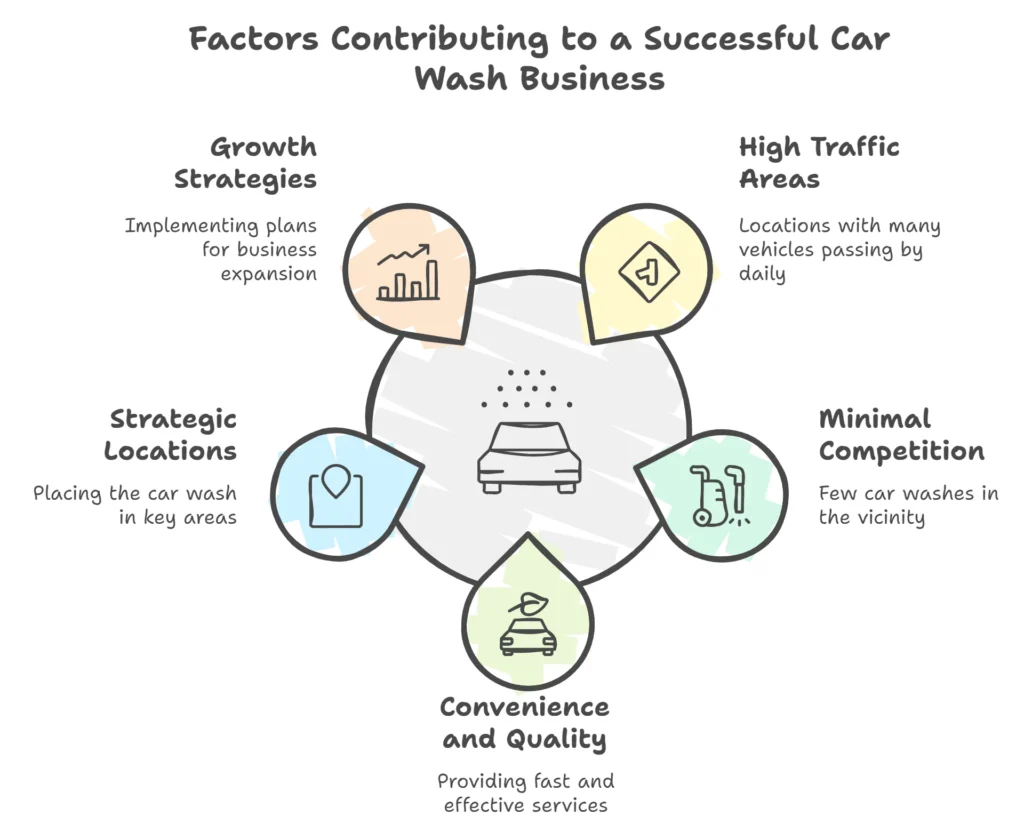
Successful models in Nairobi often offer VIP services like car detailing, waxing, and engine cleaning.
3) Launch a laundry service
Laundry businesses remain indispensable, especially in busy towns with limited residential washing space.
Majority of the working Nairobians barely have time to do laundry, creating a big opportunity for you.
To start a laundry business, you’ll need some basic equipment. Get a few good washing machines and dryers.
Choose energy-efficient models to keep your costs down.
You can start small from your home. As you grow, look for a good location with lots of foot traffic. Near apartments or office buildings is ideal.
Pricing is key. Research what other laundries charge in your area. Offer competitive rates, but make sure you can still turn a profit.
Quality matters in this business. Use good detergents and handle clothes with care. Happy customers will come back and tell their friends.
The startup costs can vary. You might need around 250,000 Kenyan shillings to get going. This covers equipment, rent, and initial supplies.
A typical laundry in Kenya can earn between 3,000 to 10,000 shillings per day. Your income will depend on your location and number of customers.
To stand out, offer extra services. Pick-up and delivery can be a big draw. If your business can afford it, offer it. Some customers might pay more for same-day service.
You can reach potential customers by establish your digital presence as well as distributing flyers to local businesses in your area.
Requirements:
- Basic setup (KES 150,000–300,000): Purchase one or two washing machines, quality detergents, fabric softeners, ironing boards, and hangers.
- Expansion gear: Include dryers or commercial-grade machines to handle more volume.
Specialization ideas:
- Target hostels or apartments to attract students or young professionals.
- Offer dry-cleaning services for suits and delicate fabrics.
- Provide corporate packages for uniform cleaning.
Scaling:
- Add delivery options for pick-ups and drop-offs.
- Use a mobile app or website where customers can track orders.
- Advertise through local WhatsApp groups to reach nearby residents.
- Ensure that your business has a local search presence. The easiest way to do this is to create, update and maintain a Google My Business listing.
4) Open a repair shop
A repair shop addresses two critical consumer pain points:
- the high cost of replacing broken equipment and
- the need for convenience.
From cars and electronics to household appliances, repair services are always in demand.
Kenya’s growing middle class relies heavily on items like smartphones, laptops, vehicles, and home electronics, making repair shops essential in urban and peri-urban areas.
How to get started
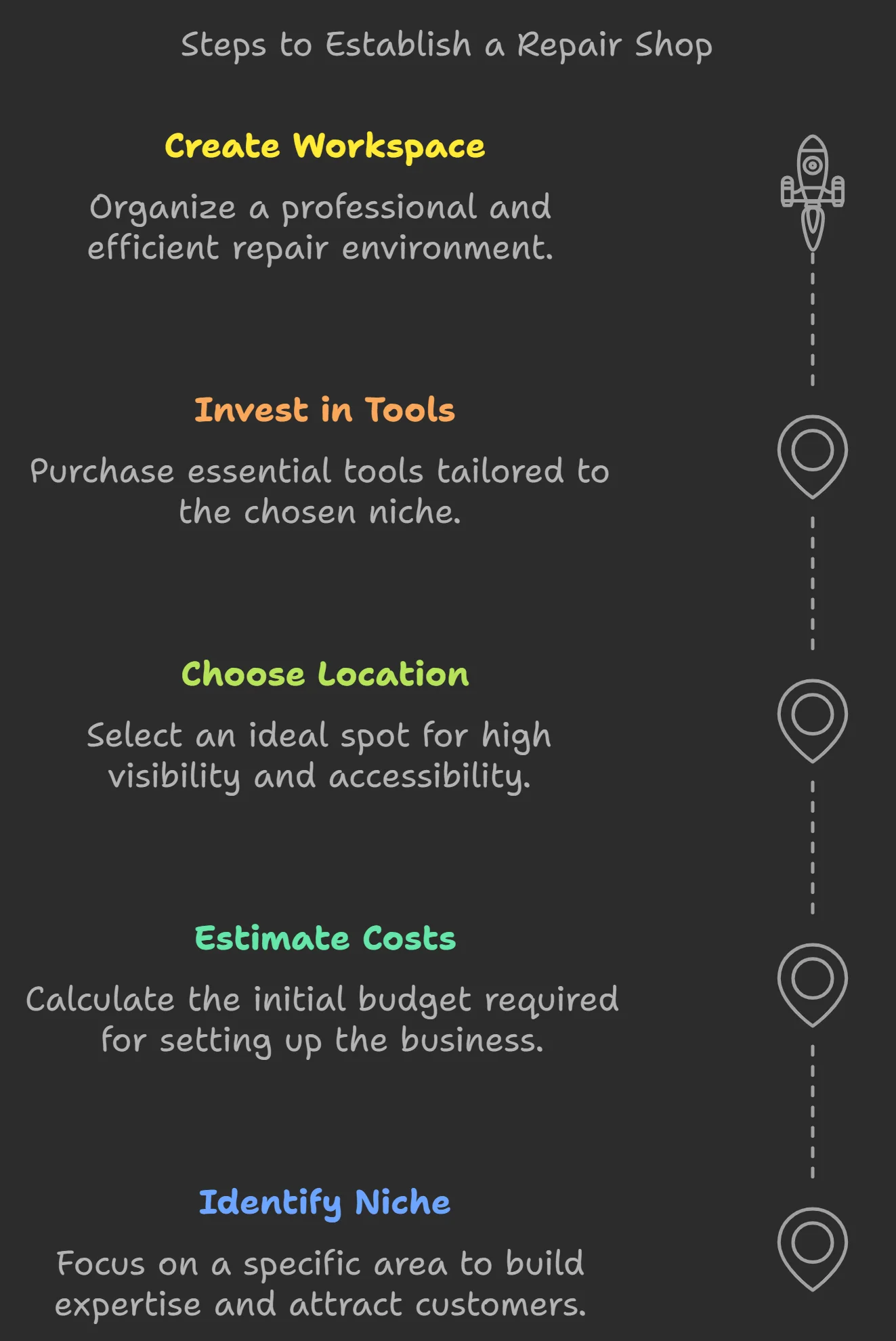
a) Identify your niche
Focusing on a specific area helps establish expertise and attract loyal customers. Examples include:
- Vehicle repair: Specializing in servicing popular car models like Toyotas or Nissans.
- Electronic gadgets: Repair smartphones, laptops, tablets, and gaming consoles.
- Home appliances: Fix refrigerators, microwaves, or washing machines.
b) Initial costs
Your startup budget will vary based on the niche, but here’s a basic estimate:
| Item | Estimated Cost (KES) |
| Rent for workshop space | 10,000–30,000 monthly |
| Tools and equipment | 50,000–150,000 |
| Initial stock (spare parts) | 30,000–70,000 |
| Branding and signage | 5,000–15,000 |
| Licensing and permits | 5,000–20,000 |
Setting up your repair shop
a) Choose an ideal location
- Urban areas: High vehicle traffic and dense populations are ideal for car repair shops.
- Residential areas: A repair shop for home appliances or electronics will thrive near estates or apartment complexes.
- Close to suppliers: This ensures easy access to spare parts and reduces downtime.
b) Invest in the right tools
Depending on your focus, purchase essential tools such as:
- For vehicles: Wrenches, diagnostic scanners, jacks, and compressors.
- For electronics: Multimeters, soldering kits, and precision screwdrivers.
- For appliances: Voltage testers, replacement fuses, and spanners.
c) Create a professional workspace
- Divide your space into sections: diagnostics, repairs, and storage for spare parts.
- Maintain cleanliness to give customers confidence in your professionalism.
5) Baking and Cake-Making Business in Kenya
This is another great small business idea for Kenyans as there is a growing demand for custom cakes, pastries, and other baked goods.
Your business can cater to birthday parties, graduation ceremonies, office celebrations, and weddings, to name but a few.
While you will be catering to individuals, majority of your earnings will come from corporate clients.
Startup Costs and Equipment Needs
You can start small from your home kitchen with basic tools:
- Oven: KES 15,000–50,000 (depending on size and brand).
- Mixers and baking tins: KES 10,000–20,000.
- Ingredients: KES 5,000–10,000 (flour, sugar, butter, etc.).
- Packaging: KES 2,000–5,000.
An initial investment of KES 30,000–100,000 is sufficient for small-scale operations.
Ideal Location
While you can start from home, consider setting up in residential areas or near schools and offices for walk-in customers.
Profitability
Customized cakes sell for KES 2,000–10,000 or more, depending on size and design, as well as the type of clients you serve.
On average, you can earn a profit margin of 50%–70% per cake. Monthly revenue can range between KES 50,000–200,000, depending on demand.
Marketing strategies
- Social media: Share high-quality images and videos of your creations on Instagram, Facebook, and TikTok.
- Word of mouth: Encourage satisfied clients to refer others.
- Local partnerships: Collaborate with event planners or venues for regular orders.
Scaling and Automation
Use AI tools like Canva for marketing visuals and platforms like Make.com to automate customer inquiries and orders.
As the business grows, hire assistants and invest in larger ovens to increase output.
This business thrives on creativity and consistency, ensuring steady income if well-managed.
6) Mushroom Farming in Kenya
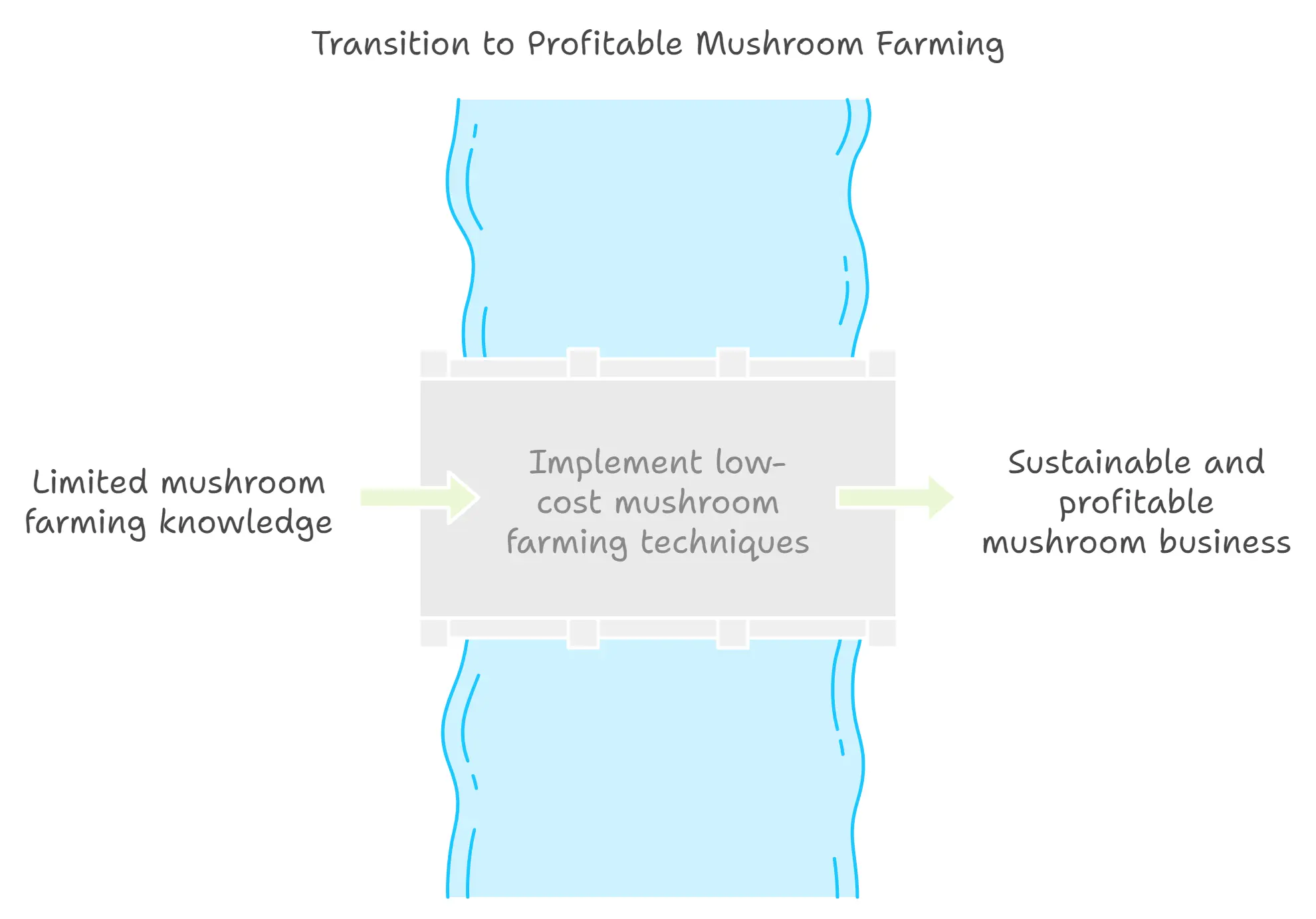
Mushroom farming is a highly profitable agribusiness with growing demand in Kenya.
Mushrooms are a versatile, nutritious crop used in restaurants, grocery stores, and health food markets.
Oyster and button mushrooms are the most popular varieties grown in Kenya.
Startup Costs and Requirements
Mushroom farming requires minimal space and resources to start.
Some of the things that you will need include:
- A growing house: Construct a simple wooden or mud-walled structure for KES 10,000–50,000, depending on size. You can use a spare room if you have one.
- Spawn (mushroom seeds): Cost KES 1,000–2,500 per kilogram.
- Substrate: Use readily available materials like wheat straw or sawdust (KES 3,000–5,000).
- Equipment: Plastic bags, thermometers, and humidity controls cost around KES 10,000.
An initial investment of KES 50,000–100,000 is sufficient for a small-scale farm.
Cultivation Process
- Prepare the substrate by sterilizing it to eliminate pests.
- Mix the spawn with the substrate and pack them into plastic bags.
- Maintain controlled conditions: 20°C–24°C temperature and 80% humidity.
- Harvest after 8 weeks. Maturity vary depending on the types of mushrooms that you grow
Profitability
Mushrooms yield up to 10 kilograms per square meter per cycle.
With a selling price of KES 400–600 per kilogram, you can earn up to KES 100,000 monthly with a small 10×10-foot farm.
Marketing Strategies
- Direct Sales: Supply restaurants, supermarkets, and local markets.
- Online Platforms: Sell through social media or e-commerce sites.
- Health Conscious Audience: Promote mushrooms as a high-protein, low-calorie food for fitness enthusiasts.
Scaling and Automation
Expand by producing value-added products like dried mushrooms or mushroom powder. Automate irrigation and temperature controls using IoT systems to improve efficiency and yields.
This eco-friendly venture is low-risk and offers steady returns with proper management.
7) Sell cosmetics or start a beauty business
The cosmetics business caters to diverse customer needs, offering multiple revenue streams.
Focus on trends like organic products or affordable alternatives.
Starting options:
- Brick-and-mortar store: Set up in a busy market like Gikomba or Nairobi CBD. Stock high-demand products such as makeup, facial care, nail, body care, haircare products, or deodorants and fragrances or even beauty accessories.
- E-commerce beauty store: Sell online to access customers countrywide. Platforms like Instagram, TikTok, or Shopify are great tools for building a loyal customer base.
Sub ideas:
- Start a makeup studio offering bridal packages.
- Offer consultation services for skin treatments with trained staff.
- Create private-label products like shea butter creams or lip balms.
Marketing techniques:
- Leverage influencers on TikTok or Instagram to promote your products.
- Create tutorial videos on skincare or makeup tips, focusing on everyday beauty hacks.
8) Clothing Boutique
Another great small business idea that is quite similar to the mitumba business is a clothing boutique.
Unlike the mitumba business, you don’t need to set up a store at popular markets such as Gikomba for this idea.
All you need is a shop on a busy street and centre.
You don’t need a huge space to start. A small shop in a busy area can work well. Pick a spot where lots of people walk by.
Focus on trendy clothes that young professionals will like. This group often has money to spend on fashion.
You can sell both local and imported items to give customers more choices.
Leverage the power of social media to show off your clothes. Post pictures of new arrivals on Instagram and Facebook.
This can help bring in customers without spending much on ads.
Good customer service is key. Help people find outfits that look great on them. If customers feel good, they’ll come back and tell their friends.
As you make money, add more items or move to a bigger shop. With hard work, your boutique could become a go-to spot for fashion in your area.
9) Social media management for local businesses
Having a strong social media presence is crucial for businesses of all sizes.
However, many small business owners in Kenya lack the time, skills, or resources to manage their social media effectively.
This is where your social media management service can step in and fill a vital need.
Why it’s a great opportunity:
- Growing importance of online presence for businesses
- Low startup costs (mainly requires skills, social media scheduler, and a computer)
- Potential for recurring clients and steady income
Getting started
To launch your social media management business, you’ll need:
- A reliable computer and internet connection
- Knowledge of popular social media platforms
- Acess to a social media scheduler (Hootsuite, Publer, Buffer)
- Basic graphic design skills (for creating posts)
- Understanding of social media analytics
Pro tip: Consider taking online courses in social media marketing to sharpen your skills and stay updated on the latest trends.
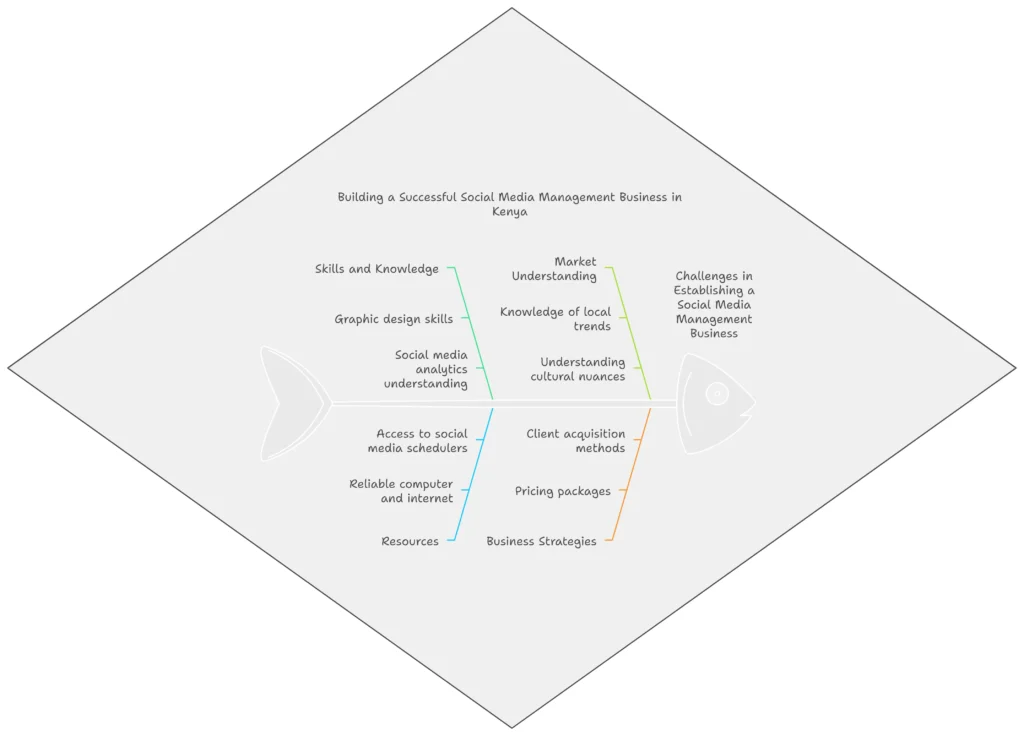
Services you can offer
- Content creation: Develop engaging posts, images, and videos for various platforms.
- Account setup and optimization: Help businesses create and optimize their social media profiles.
- Scheduling and posting: Manage regular posting schedules for consistent online presence.
- Community management: Respond to comments and messages on behalf of the business.
- Analytics and reporting: Track performance metrics and provide regular reports to clients.
You also need to understand local trends, holidays, and cultural nuances to create relevant content that resonates with Kenyan audiences.
Pricing your services
Consider offering tiered packages to cater to different business sizes and needs:
- Basic package: Management of one platform, 3-5 posts per week
- Standard package: Management of two platforms, 5-7 posts per week, basic analytics
- Premium package: Management of three or more platforms, daily posts, detailed analytics, and strategy consulting
Remember: As you gain experience and build a portfolio, you can gradually increase your rates.
Growing your social media management business
- Build a strong online presence: Use your own social media accounts as a showcase of your skills.
- Network with local businesses: Attend business events and join local business groups.
- Offer free trials: Give potential clients a taste of your services with a free week or month of management.
- Collect and showcase testimonials: Happy clients can be your best advertisers.
- Stay updated: The social media landscape is always changing, so continuous learning is key.
By providing valuable services that help local businesses grow their online presence, you can build a successful and rewarding social media management business in Kenya.
10) Chemist Shop
Starting a chemist shop in Kenya can be a smart business move. People always need medicine and health products. You don’t need a huge space to get started.
To open a chemist shop, you’ll need some key things.
First, get the right licenses and permits. This includes registering your business and getting approval from health authorities.
Choose a good spot for your shop. Look for a place with lots of foot traffic. Near hospitals, clinics, or busy streets can work well. Make sure it’s easy for customers to find and get to.
Stock your shelves carefully. Start with common medicines, first aid supplies, and health products. As you grow, you can add more items based on what customers want.
Hire qualified staff. You’ll need at least one licensed pharmacist to operate a chemist in Kenya. They can give advice and handle prescriptions. Good customer service is key in this business.
Keep your shop clean and organized. People want to feel safe buying health products. A tidy store builds trust and keeps customers coming back.
Pricing is tricky. You want to make a profit, but stay competitive. Check what other shops charge. Offer fair prices to build a loyal customer base.
Marketing your chemist shop is important. Use signs, flyers, and social media to let people know you’re open. Highlight any special services or products you offer.
11) Beauty Salon
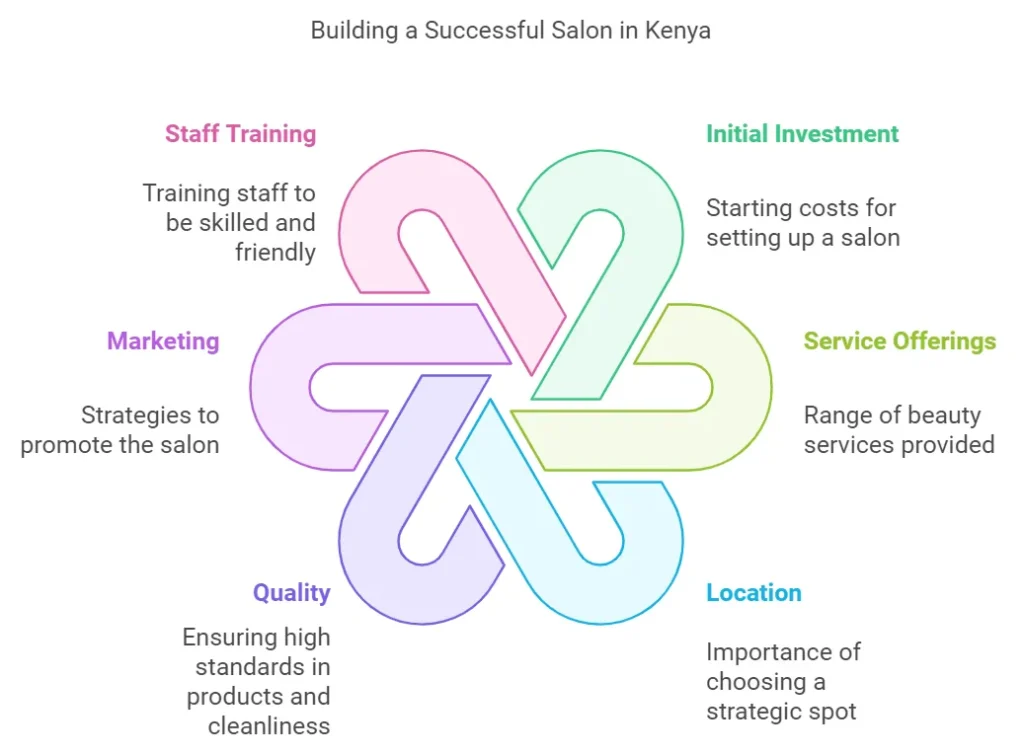
You can’t really talk about small business ideas in Kenya without mentioning salons.
With about 50,000 Kenyan shillings, you can set up a small salon. If you want a bigger place, you might spend up to 2 million shillings.
Your salon can offer many services. Hair styling, haircuts, and coloring are popular. You can also do nails, facials, and makeup.
Think about what your customers want most, and offer them.
With a salon business, location matters a lot.
Pick a spot where many people walk by. Make sure it’s easy to get to. Good places include shopping centers or busy streets.
Quality is key. Use good products and tools. Keep your salon clean and fresh. Customers will come back if they like how you treat them.
Marketing helps your business grow. Use social media to show off your work. With permission of your clients, take the after pictures of hairdos, nail arts, etc, and post them as image posts, reels, short videos etc on various social channels (Think TikTok, and Facebook Stories, and Instagram Reels)
Offer deals to new customers. Word-of-mouth is powerful, so make each visit special.
Train your staff well. They should be friendly and skilled. Happy workers make happy customers.
Thr truth is, running a salon takes hard work. But if you do it right, it can be very rewarding. You’ll help people feel beautiful and confident every day.
12) eCommerce Store
eCommerce stores enable Kenyans to run business fronts without the need for a physical store.
This cuts down on costs and lets you reach customers across the country. Power that with a remarkable digital presence and intentional digital marketing, and your earnings potential could be unlimited.
To get started, pick a niche that interests you. It could be fashion, electronics, or handmade goods.
Make sure there’s demand for your products in the particular region where you will be mainly operating from..
Next, set up your online store. You can use platforms like Shopify or WordPress powered by WooCommerce.
These make it easy to create a professional-looking online website without coding skills.
Don’t forget about payment options. M-Pesa is popular in Kenya, so make sure to offer it. Also consider other methods like credit cards for wider appeal.
Marketing is key for your eCommerce success. Use social media to showcase your products. Instagram and Facebook are great for visual items.
Email marketing can help you stay in touch with customers.
Good customer service is nearly everything when running a purely online business.
Remember to provide good customer service. Quick responses and easy returns can set you apart from competitors. Happy customers are more likely to buy again and recommend you to others.
13) Fast Food Kiosk
Starting a fast food kiosk in Kenya can be a great business idea for 2025. You can tap into the growing demand for quick, affordable meals in urban areas.
To get started, you’ll need a good location with high foot traffic. Think about busy streets, near offices, or schools. Your menu should include popular local favorites like chapati, mandazi, and samosas.
Fast food kiosks can make between 5,000 and 15,000 Kenyan shillings per day. This shows the potential for good profits.
You don’t need a huge amount of money to start. With about 20,000 Kenyan shillings, you can set up a basic kiosk. This makes it a great option if you’re on a tight budget.
Key things to focus on:
- Food quality and taste
- Quick service
- Cleanliness
- Friendly staff
Make sure you get all the proper licenses and permits. This includes a health certificate and a business permit from your local government.
Marketing is important too. Use social media to promote your kiosk. Offer special deals to attract customers. Word-of-mouth can be powerful, so make sure every customer leaves happy.
As your business grows, you might think about expanding your menu or opening more kiosks in different locations. The fast food market in Kenya is competitive but has room for creative, hardworking entrepreneurs.
14) Soap and Detergent Manufacturing
Soap and detergent manufacturing is an excellent small business idea in Kenya. You can start with minimal capital and gradually expand your operations.
Getting started
To begin, you’ll need basic ingredients and equipment:
- Soap making: Oils, lye, and fragrances.
- Detergents: Surfactants, builders, and other chemicals.
You can launch a soap business with as little as KES 15,000, making soaps manually at home. As your business grows, consider investing in machines to increase production capacity.
Market potential
There’s high demand for soaps and detergents in Kenya. Popular target markets include:
- Homes
- Hotels
- Spas
Natural and handmade soaps are particularly trendy and can fetch higher prices.
Your daily earnings may range between KES 1,000 and KES 7,000, depending on production and sales volumes.
Soap making process
- Mix oils with lye solution.
- Pour the mixture into molds.
- Let the soap harden, then cut it into bars.
- Cure the bars for several weeks before selling.
Detergent making process
The process for detergents depends on the type:
- Powder detergents: Involve blending dry chemicals.
- Liquid detergents: Require mixing liquid surfactants and builders.
Safety precautions
Handling chemicals can be hazardous. Always follow safety guidelines:
- Wear gloves and goggles.
- Work in a well-ventilated area.
Scaling and marketing
- Start with small batches and sell locally.
- As demand grows, increase production and consider certifications to build customer trust.
- Market your products effectively:
- Use social media to showcase your soaps and detergents.
- Offer samples to attract new customers.
- Partner with local stores and hotels for bulk sales.
15) Electrical supplies shop
An electrical supplies shop is a smart business idea that’s always in demand. People constantly need electrical items, from light bulbs to wiring materials.
Why it works
- Consistent demand: Electrical supplies are essential for homes, businesses, and construction projects.
- Flexible setup: You don’t need a large space to start. A small shop in a busy location can work just fine.
Setting up your shop
- Stock common items: Start with high-demand products like switches, sockets, light bulbs, cables, and breakers.
- Cater to diverse customers: Serve both DIY enthusiasts and professional electricians by offering a mix of basic and specialized supplies.
Research and planning
- Conduct market research: Understand what’s most needed in your area.
- Analyze competitors: Identify gaps you can fill, such as better prices or additional services.
Customer service tips
- Be approachable and ready to offer advice. Many customers will rely on you to guide them in selecting the right items.
- Build trust by staying updated on electrical codes and regulations. Use this knowledge to help customers find safe, compliant products.
Offer value-added services
Differentiate yourself from big-box stores by offering services like:
- Lamp repairs.
- Custom wiring jobs.
- Electrical installation tips.
Pricing strategy
- Stay competitive: Source your stock from reliable wholesalers to offer good prices.
- Prioritize quality: Customers expect safe, durable products for their electrical needs.
Build relationships
- Partner with local contractors and electricians to become their go-to supplier.
- Offer bulk discounts or loyalty programs to keep them coming back.
Marketing tips
- Use social media to showcase your shop and new arrivals.
- Provide simple how-to videos on TikTok to engage DIY enthusiasts.
- List your business in local directories to boost visibility.
An electrical supplies shop is a reliable and profitable venture. With careful planning and excellent service, you can thrive in Kenya’s growing economy!
By focusing on these small business ideas and leveraging digital tools, you can carve out a niche in Kenya’s dynamic market. Choose one idea that aligns with your skills, then take incremental steps to scale effectively.
Which Small Business is Most Profitable in Kenya?
Starting a small business in Kenya can be a great way to make money. But which one will give you the best return on your investment?
Car wash businesses are a top choice. More cars on the roads mean more dirty vehicles needing cleaning. Setting up a car wash can be very profitable.
Another good option is opening a butchery. Kenyans love meat, so the demand is high. Make sure to offer fresh, clean meat and a variety of cuts to attract customers.
Farming is also worth considering. With the right approach, you can turn a good profit. Focus on in-demand crops and use modern farming methods.
Here are some other profitable small business ideas for Kenya:
- Mobile money agency
- Online retail store
- Food delivery service
- Laundry service
- Digital Marketing agency
- Clothing boutique
The key is to pick a business that matches your skills and interests. Do your research to understand the market and costs involved.
With hard work and strategic planning, you can build a successful small business in Kenya.
Challenges and Opportunities for Small Businesses
One big challenge associated with small businesses is getting money to start your business. Banks can be picky about loans. But don’t worry! There are other ways to fund your idea.
You could try crowdfunding or look for investors.
Red tape can also slow you down. Getting licenses and permits takes time. Stay patient and follow the rules. It’ll pay off in the long run.
On the bright side, Kenya’s economy is growing fast. This means more people with money to spend. Your new business could tap into this market.
Technology is changing how we do business. It might seem scary, but it’s a big opportunity.
Using tech can help you reach more customers and work smarter.
Here’s a quick look at some key challenges and opportunities:
Challenges:
- Finding startup funds
- Dealing with regulations
- Standing out in a crowded market
Opportunities:
- Growing middle class
- New tech solutions
- Gaps in the market waiting to be filled
 Domain SearchInstantly check and register your preferred domain name
Domain SearchInstantly check and register your preferred domain name Web Hosting
Web Hosting cPanel HostingHosting powered by cPanel (Most user friendly)
cPanel HostingHosting powered by cPanel (Most user friendly) KE Domains
KE Domains Reseller HostingStart your own hosting business without tech hustles
Reseller HostingStart your own hosting business without tech hustles Windows HostingOptimized for Windows-based applications and sites.
Windows HostingOptimized for Windows-based applications and sites. Free Domain
Free Domain Affiliate ProgramEarn commissions by referring customers to our platforms
Affiliate ProgramEarn commissions by referring customers to our platforms Free HostingTest our SSD Hosting for free, for life (1GB storage)
Free HostingTest our SSD Hosting for free, for life (1GB storage) Domain TransferMove your domain to us with zero downtime and full control
Domain TransferMove your domain to us with zero downtime and full control All DomainsBrowse and register domain extensions from around the world
All DomainsBrowse and register domain extensions from around the world .Com Domain
.Com Domain WhoisLook up domain ownership, expiry dates, and registrar information
WhoisLook up domain ownership, expiry dates, and registrar information VPS Hosting
VPS Hosting Managed VPSNon techy? Opt for fully managed VPS server
Managed VPSNon techy? Opt for fully managed VPS server Dedicated ServersEnjoy unmatched power and control with your own physical server.
Dedicated ServersEnjoy unmatched power and control with your own physical server. SupportOur support guides cover everything you need to know about our services
SupportOur support guides cover everything you need to know about our services

